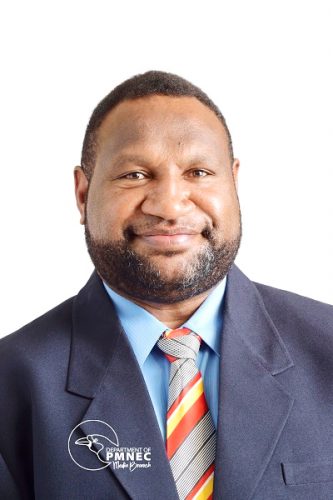Even after poor countries with their abundance of oil & gas and other natural resources experience the thrill of discovery and exploitation, the road to accessing what they consider to be their fair share of those resources, is still often strewn with formidable obstacles, as both Guyana and Papua New Guinea (PNG) are finding out.
The 463,000 square kilometre Pacific island country, which was under administration by Australia for 60 years until 1975, is currently locked in an animated battle with the American oil giant ExxonMobil and other powerful international companies in various quests to secure a greater share of the country’s wealth.
Sections of the international media have honed in on PNG Prime Minister James Marape’s recent blunt address to the PNG National Assembly which outlined what his administration considers to be the country’s fair share of the returns from its natural resources, notably its liquefied natural gas (LNG), and which, down the road, could well serve as a template for other countries, not least, Guyana to follow.

of Papua New Guine
Marape, it seems, is intent on honouring a pledge made during his 2019 general elections campaign, to unshackle PNG from the deals made with various multinational energy and mining companies currently exploiting the country’s natural resources, ExxonMobil being one of its prime targets in that regard.
Just how hard the country appears to be pressing for a better deal from ExxonMobil et al, is reflected in last year’s forced resignation of its Prime Minister, Peter O’Neill, having been in imminent danger of losing a confidence vote in the National Assembly. That still was not sufficient to prevent his immediate replacement, Julius Chan from ‘going under’ to Marape in the subsequent general elections.
O’Neill’s resignation came on the heels of a natural gas agreement with the French company, Total SA, which reportedly triggered several resignations from inside his own Cabinet.
Long prior to Marape assuming office, the PNG government had come under pressure to secure improved deals from the LNG projects driven by metropolitan energy giants ExxonMobil and Total and reportedly worth around US$13 billion. oth the World Bank and the International Monetary Fund had reportedly publicly criticised the deals as having delivered only limited benefits to the people of the country.
Marape, who now heads a country of around nine million people and is seemingly now under pressure to assume a game-changing posture, last week demanded in his presentation to the country’s National Assembly that the US$23.5 billion GDP state, secure a 60 – 65% of returns from future projects in the extractive sector, including the oil & gas sector, up from the 40% that it has been receiving on such ventures. Marape’s pronouncement may reportedly have placed negotiations with multi-nationals in multi-billion dollar extractive industry projects in Papua New Guinea in doubt.
His administration is also demanding that such financial benefits as accrue to the country find their way into its coffers with greater haste and for investors to commit to employing local labour and utilising more local goods and services, where possible.
Talks between PNG and ExxonMobil over a multi-billion dollar P’nyang LNG project are reported to have already gone sour, industry reports indicating that they collapsed in January this year after ExxonMobil baulked at the PNG Government’s demand for terms that represent an improvement on an earlier LNG project agreed in 2014, and which, Marape is quoted as saying, amounts to the PNG being “unfairly held to ransom” by Exxon and its partner in the LNG project, Oil Search Ltd. ExxonMobil is quoted in a statement as saying that the company was hopeful that “we can continue to work towards an outcome that benefits all stakeholders.” Marape, meanwhile, said that Exxon Chief Executive Officer Darren Woods understands the PNG government’s position on P’nyang, and would respond following consultations with the joint-venture partners. Exxon Mobil is also quoted as saying that the infrastructure cost savings from Papua and P’nyang gas being processed at an expanded PNG LNG facility are integral to the economics of both projects.
“I am hopeful that both parties can find a mutually acceptable pathway when we re-engage, as a no-deal would have far reaching consequences for both parties,” Marape said.
Recent developments in PNG could well be an eye opener for poor countries that may be basking in the glow of optimism arising out of relatively recent world class oil & gas finds, not least the South American neighbouring member states of the Caribbean Community (CARICOM).
In the instance of Guyana, while pressure for a ‘better deal’ for the country is nowhere near that being applied in PNG, an even more recently elected political administration, now just over a month in office, is being pressed by the international NGO, Global Witness, to institute a probe into the prevailing Production Sharing Agreement (PSA) with ExxonMobil which it says resulted in Guyana losing out to the tune of more than US$50 billion The issue was addressed in a Global Witness document titled ‘Signed Away,’ made public earlier this year.
Back in February the then presidential candidate and now Guyana’s President, Irfaan Ali, was reported as saying during an elections rally in Essequibo (World News, January 20, 20: “Guyana opposition candidate pledges to keep Exxon contract intact”) that the existing contract with ExxonMobil would not be re-negotiated.






